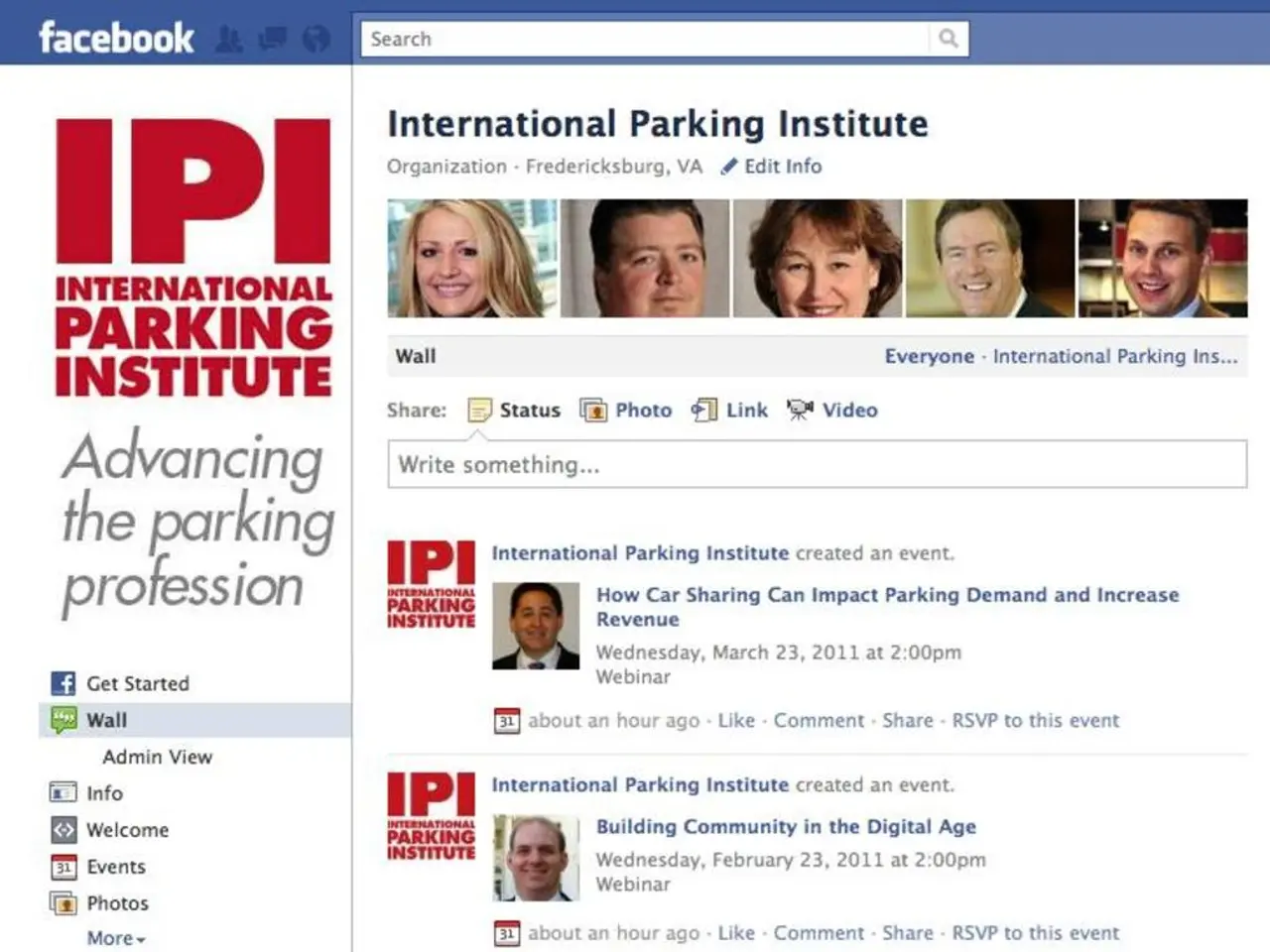The Negative Impact of Social Media on Your Intimate Relationships, Detailed
In today's digital age, social media has become an integral part of our lives. However, a growing body of research suggests that excessive use of these platforms can negatively affect sexual well-being.
Mindy DeSeta, a sexologist and sexuality educator, warns that comparing oneself to others on social media can lead to low self-esteem and sexual dysfunction. This is concerning, as adults spend nearly 2.5 hours per day on social media, which may not leave enough time for intimacy.
One of the key effects of excessive social media use is the potential development of pornography addiction. This can cause difficulty with intimacy, erectile dysfunction, disinterest in real-life sexual encounters, and emotional consequences like depression, anxiety, and low self-worth.
Moreover, social media addiction increases the risks of anxiety, depression, loneliness, and low self-esteem. These mental health challenges can indirectly impair sexual well-being and relationship satisfaction. The constant comparison and desire for social approval on social media amplify these issues.
Excessive online engagement can also replace or erode emotional intimacy with partners. This weakens bonding and affectionate sharing needed for a healthy sex life.
However, there are ways to improve sexual well-being in the digital age. Recognizing and addressing problematic use is the first step. If social media is consistently causing feelings of inadequacy, disconnection from the body, or fear of sexual intimacy, seeking help from a qualified professional may be necessary.
Limiting social media usage can help reduce anxiety and depressive symptoms. Setting boundaries on screen time, minimizing exposure to negative content, and fostering real-world social interactions are effective strategies.
Enhancing emotional intimacy is another crucial aspect. Prioritizing communication and quality time with partners, reducing distractions from devices during shared moments, can help strengthen bonds.
Encouraging healthy digital habits is also important. Creating offline times and places, and cultivating hobbies and activities that improve self-esteem and mood outside the digital realm can help maintain a balanced lifestyle.
In some cases, therapy or counseling may be necessary. These can help address underlying mental health issues or sexual dysfunction that may be interrelated with digital behavior patterns and psychological well-being.
Grace J. and her partner provide a real-life example of the positive impact of reducing social media use. After taking a break from social media, they started connecting more intimately and had sex for the first time in almost a year.
In summary, excessive social media use can compromise sexual well-being through psychological distress and reduced intimacy. However, mindful digital consumption and focused relationship nurturing can help restore and improve sexual health in the digital age.
It's important to remember that everyone's experience with social media is unique. While some may find it beneficial, others may struggle with its impact on their sexual well-being. Awareness and mindful use are key to maintaining a healthy balance in the digital age.
References:
- Kohut, J. (2022). Overcoming Porn Addiction: A Comprehensive Guide. New York: HarperCollins.
- Lambert, N. M., & Wilson, G. T. (2021). The Digital Addiction Revolution: Understanding, Prevention, and Treatment. San Francisco: Jossey-Bass.
- Twenge, J. M. (2017). iGen: Why Today's Super-Connected Kids Are Growing Up Less Rebellious, More Tolerant, Less Happy—and Completely Unprepared for Adulthood—and What That Means for the Rest of Us. New York: Atria Books.
- Brown, B. (2020). The Gifts of Imperfection: Let Go of Who You Think You're Supposed to Be and Embrace Who You Are. Center City, MN: Hazelden Publishing.
- DeSeta, M. (2021). The Ultimate Guide to Sex and Pleasure: A Sexologist's Wisdom for a Fulfilling Sex Life. New York: Atria Books.
- The excessive use of social media, as pointed out by Mindy DeSeta, can adversely impact mental health, leading to low self-esteem, sexual dysfunction, and even addiction to pornography, which in turn can negatively affect sexual well-being and relationships.
- Reducing social media usage and prioritizing emotional intimacy with partners, such as communication and quality time, can help restore and improve sexual health in the digital age, as demonstrated by Grace J. and her partner's experience.
- Encouraging healthy digital habits, like creating offline times and places, cultivating hobbies, and fostering real-world social interactions, can help maintain a balanced lifestyle that promotes both physical and mental health-and-wellness.




